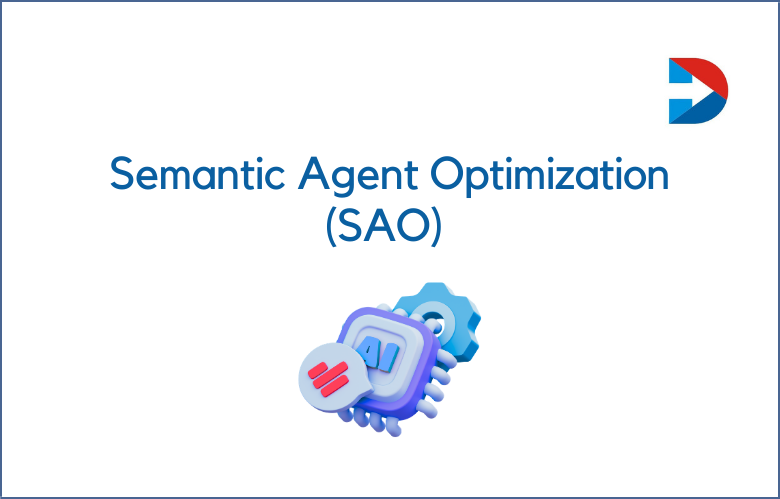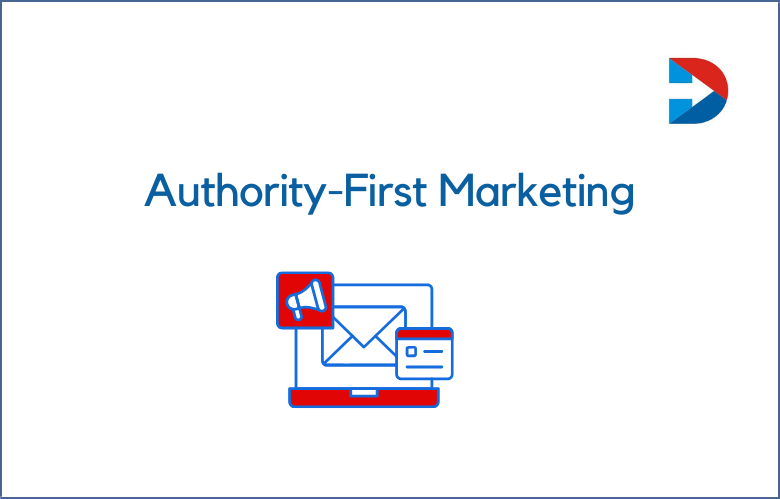
WordPress is one of the most popular content management systems, powering over 30% of all websites. It’s an excellent tool for creating websites and publishing content with ease.
However, WordPress can sometimes need help with performance and user experience as websites become more complex. That’s where decoupled WordPress comes in. We’ll explore what decoupled WordPress is and how it can improve website performance and user experience.
WordPress is a popular content management system (CMS) that powers millions of websites worldwide. It’s a highly flexible platform that offers robust customization and control of your website.
However, traditional WordPress websites are built with tightly integrated backend and frontend technologies.
This means that the server-side and client-side codes are intertwined, which can negatively affect website performance and user experience.
Decoupled WordPress is an emerging approach that separates a website’s backend and frontend technologies. This means you can use WordPress solely as a backend system, while any frontend technology can communicate with it through a RESTful API.
We’ll dive deeper into decoupled WordPress and how it can improve website performance and user experience.
What is Decoupled WordPress and Why Should You Care?
Decoupled WordPress, or headless WordPress, is a web development paradigm separating a WordPress site’s front and back ends.
Rather than using WordPress’s built-in theme system, developers use a RESTful API to connect the content management system to a separate front end that can be built with any programming language, such as React or AngularJS.
Regarding WordPress, decoupling is an intriguing option for several reasons. It enables developers to create more interactive and immersive user experiences.
In addition, it promotes looser coupling between a website’s front and back end, simplifying the development process and reducing the likelihood of errors.
What are the pros and cons of decoupling WordPress for your website?
Decoupling WordPress from your website can offer a range of benefits and drawbacks, both of which should be considered before making a decision.
On the one hand, this approach can provide greater flexibility, scalability, and speed in managing content. On the other hand, it may also involve more technical complexity and customization, which can require additional resources and expertise.
One of the main advantages of decoupling WordPress is that it allows for easier integration with other technologies and platforms beyond the traditional CMS.
For instance, a headless WordPress site can serve content and data to multiple devices and channels, such as mobile apps, wearables, chatbots, and digital signage.
This can enhance the user experience and reach of the website while reducing the need for duplicating content and managing multiple systems.
Decoupled WordPress: What Developers Need to Know to Get Started?
Decoupled architecture has become a buzzword in the development of CMS (Content Management System). Decoupling enables developers to create a CMS with an independent front and back end. And this is where Decoupled WordPress comes in.
WordPress is a leading CMS platform of choice for millions of websites. WordPress’s strength lies in its themes, which use PHP and WordPress functions to apply branding, design, and functionality to the front end.
However, this has limitations that often hinder developers from using WordPress to create complex projects.
With Decoupled WordPress, developers can have the freedom to choose any frontend language, framework, or tool. Moreover, it enables developers to create a custom interface tailored for specific use cases according to their needs.
Maximizing the Benefits of Decoupled WordPress for Your Business?
Improved Performance:
One of the primary benefits of decoupling WordPress is improved performance. Because the front and backend are separate, each can be optimized independently to provide the best possible user experience.
Decoupling can allow for caching at multiple levels, further improving performance.
Scalability:
Another benefit of decoupling WordPress is scalability. When the front and back ends are separate, it becomes much easier to scale each independently.
For example, if the front end needs to be scaled up to handle increased traffic, this can be done without affecting the back end. This flexibility can be invaluable for businesses that experience sudden spikes in traffic or need to scale quickly for other reasons.
Flexibility:
Decoupling WordPress also offers greater flexibility when choosing technologies for the front and back ends. For example, if a business wants to use React for the front end but PHP for the back end, this is possible with decoupled WordPress.
This flexibility can be helpful for companies that want to use specific technologies for specific purposes or experiment with different technologies over time.
Improved Security:
Another benefit of decoupling WordPress is improved security. Because the front and backend are separate, it becomes much more difficult for attackers to compromise both simultaneously.
Decoupling can allow for more granular control over security policies, further improving security.
Better User Experience:
Decoupling WordPress can also lead to a better user experience as it allows for greater flexibility in how content is displayed on the front end.
For example, if a business wants to show content in a specific way on mobile devices but in a different way on desktop devices, this is possible with decoupled WordPress. This flexibility can be helpful for businesses that want to optimize their sites for specific devices or screen sizes.
Reduced Costs:
One final benefit of decoupling WordPress is reduced costs. When the front and back ends are separate, hosting each on different providers becomes possible.
This can lead to significant cost savings as businesses only need to pay for hosting. Decoupling can allow companies to use cheaper hosting options such as shared hosting.
Easier Maintenance:
Decoupled WordPress sites are also easier to maintain than traditional WordPress sites. There is less overall code, and each component (frontend, backend) can be updated independently.
This can lead to significant savings in time and money as businesses won’t need to spend as much time or money on maintenance.
Greater Collaboration:
One final benefit of decoupling WordPress is greater collaboration between team members.
When the front end and back end are separate, it becomes possible for team members with different skill sets (e.g., developers and designers )to work on different parts of the site simultaneously without impacting each other’s work.
This can lead to faster development times and fewer errors as team members can focus on their areas of expertise.
New Opportunities:
Decoupling WordPress also opens up new opportunities for businesses as it provides a way to build custom applications on top of WordPress.
Companies are no longer limited by what WordPress offers but can build anything they want using any technology. While this requires more development effort upfront, it can lead to much more powerful and flexible applications in the long run.
The Future of Web Development: Decoupled WordPress Explained?
The future of web development is continuously evolving, and one of the most talked-about trends in recent years is decoupled WordPress.
Decoupled WordPress or headless WordPress is a new way of building websites and web applications by separating the backend content management system (CMS) from the frontend presentation layer.
Traditionally, WordPress has been a monolithic application where the CMS and the front end are tightly coupled.
You must change the CMS code to modify the front end. Decoupled WordPress breaks this pattern by enabling developers to separate the two layers using open standards like RESTful APIs.
Decoupled WordPress vs. Traditional WordPress: Which is Right for Your Website?
When building a website using WordPress, there are two main options: decoupled WordPress and traditional WordPress.
Decoupled WordPress is a relatively new approach in which the website’s front and back ends are separated, allowing for greater flexibility and customization.
On the other hand, Traditional WordPress is the more conventional approach that integrates both the front and back end into one cohesive platform.
One of the main benefits of decoupled WordPress is its flexibility. With decoupled WordPress, developers can use any frontend technology they choose, whether React, Vue.js, or any other framework.
This allows for more incredible customizability and control over the website’s user interface.
Because the front and back ends are separated, the website can be more easily optimized for performance, allowing faster load times and a better overall user experience.
Building a Headless WordPress Site with Decoupled Architecture?
Building a headless WordPress site with decoupled architecture is becoming increasingly popular as businesses and organizations seek to provide users with more efficient and personalized experiences.
Unlike traditional WordPress sites, a headless approach separates the front and back ends of the website, allowing developers to use any frontend technology they wish, such as React or Angular, to create the user interface.
Decoupling the two components of the site provides more flexibility and scalability, allowing developers to make modifications to either the front or back end without affecting the other.
This approach also enables content creators to use WordPress’ powerful content management capabilities while retaining the freedom to design and develop a fully customized user interface.
How Can Decoupled WordPress Help Your SEO Strategy?
Decoupled WordPress can positively impact your SEO strategy in several ways. Firstly, because decoupled WordPress allows for independent frontend development, your SEO team can focus solely on optimizing the content and structure of your site for search engines without worrying about the backend functionality.
This means you can have a more streamlined and effective SEO process.
In addition, decoupled WordPress is built with an API, allowing for faster load times and improved overall site performance.
This means search engines are more likely to favor your site in search results, as speedier load times and enhanced performance are essential ranking factors.
Integrating Decoupled WordPress with Your Existing Technology Stack?
Integrating Decoupled WordPress with your existing technology stack can offer a range of benefits that can streamline your business operations and improve the overall user experience for your customers.
One of the critical advantages of decoupling WordPress is that it enables you to use WordPress as a content management system (CMS) to easily manage, update, and publish content while using other technologies to power the frontend user interface.
This approach can benefit businesses with unique or complex user interface requirements, allowing them to use the technologies best suited to their needs.
Decoupled WordPress can help enhance website performance by reducing the load on the server, enabling faster page load times and better overall performance.
Conclusion:
Decoupled WordPress is the future of WordPress development, offering greater flexibility, scalability, and improved website performance and user experience.
By separating a WordPress website’s front and back ends, developers can use modern JavaScript frameworks to build more interactive and dynamic user experiences.
If you want to improve your website’s performance and user experience, a decoupled WordPress approach is worth considering.
Decoupled WordPress is a modern approach to building websites that separates the backend and frontend technologies, allowing for more efficient communication and better website performance and user experience.
With increased flexibility and customization options, this approach can help you build websites that perfectly align with specific design and UX requirements.
Moreover, real-time updates, faster page load times, and enhanced security can result in better user engagement and satisfaction. Decoupled WordPress may be the right choice if you’re looking to build a fast, scalable, and secure website.




